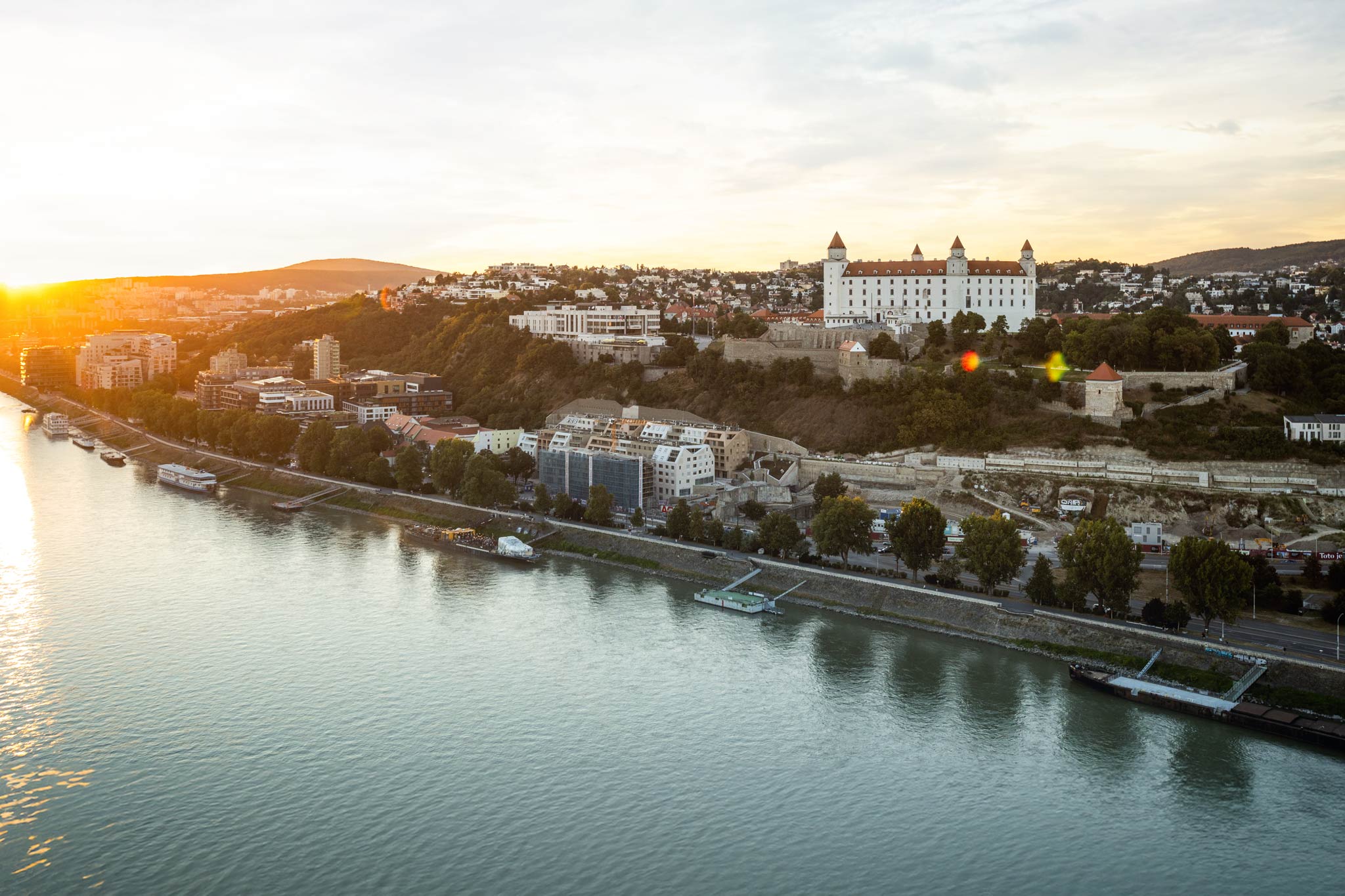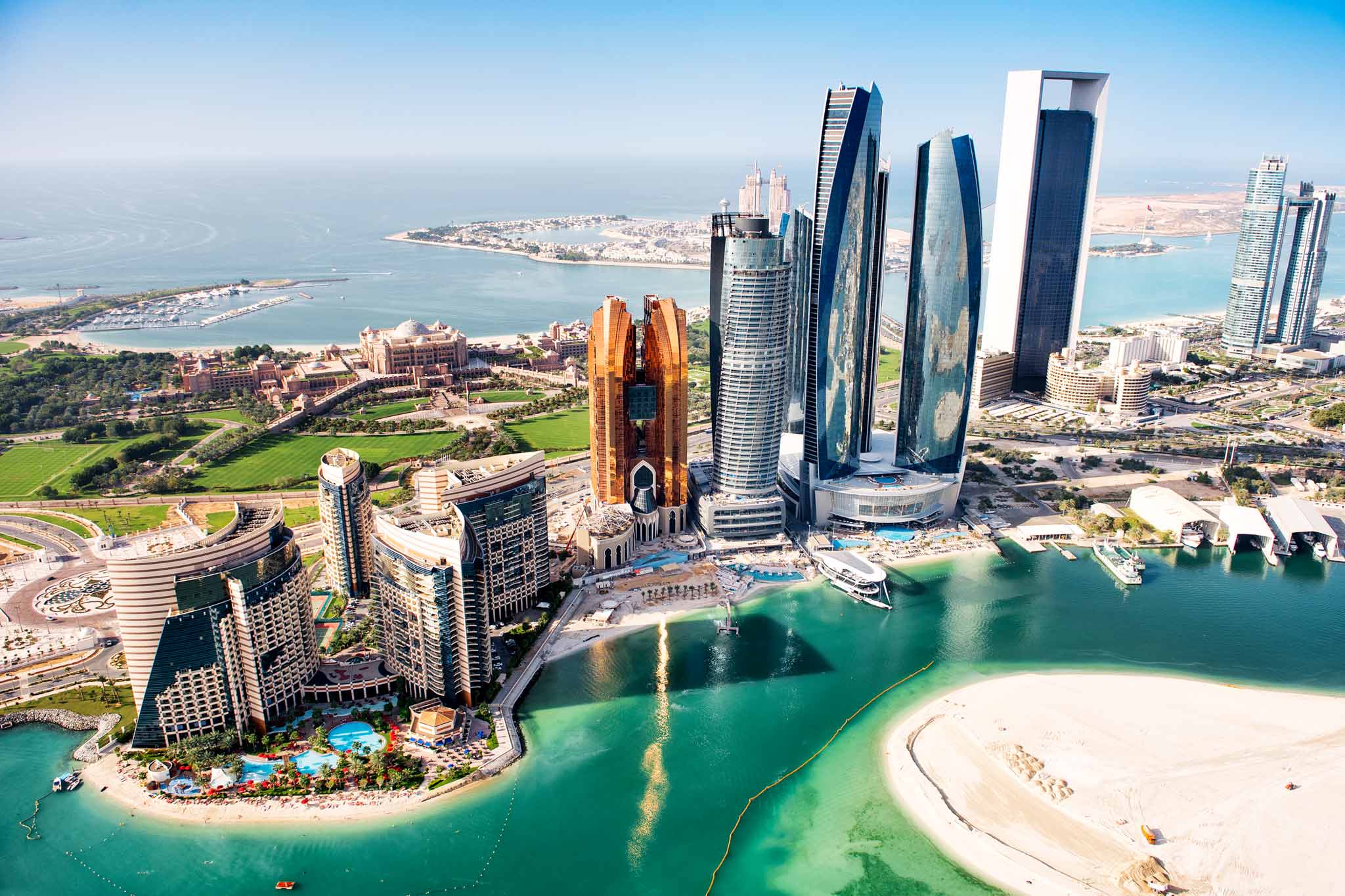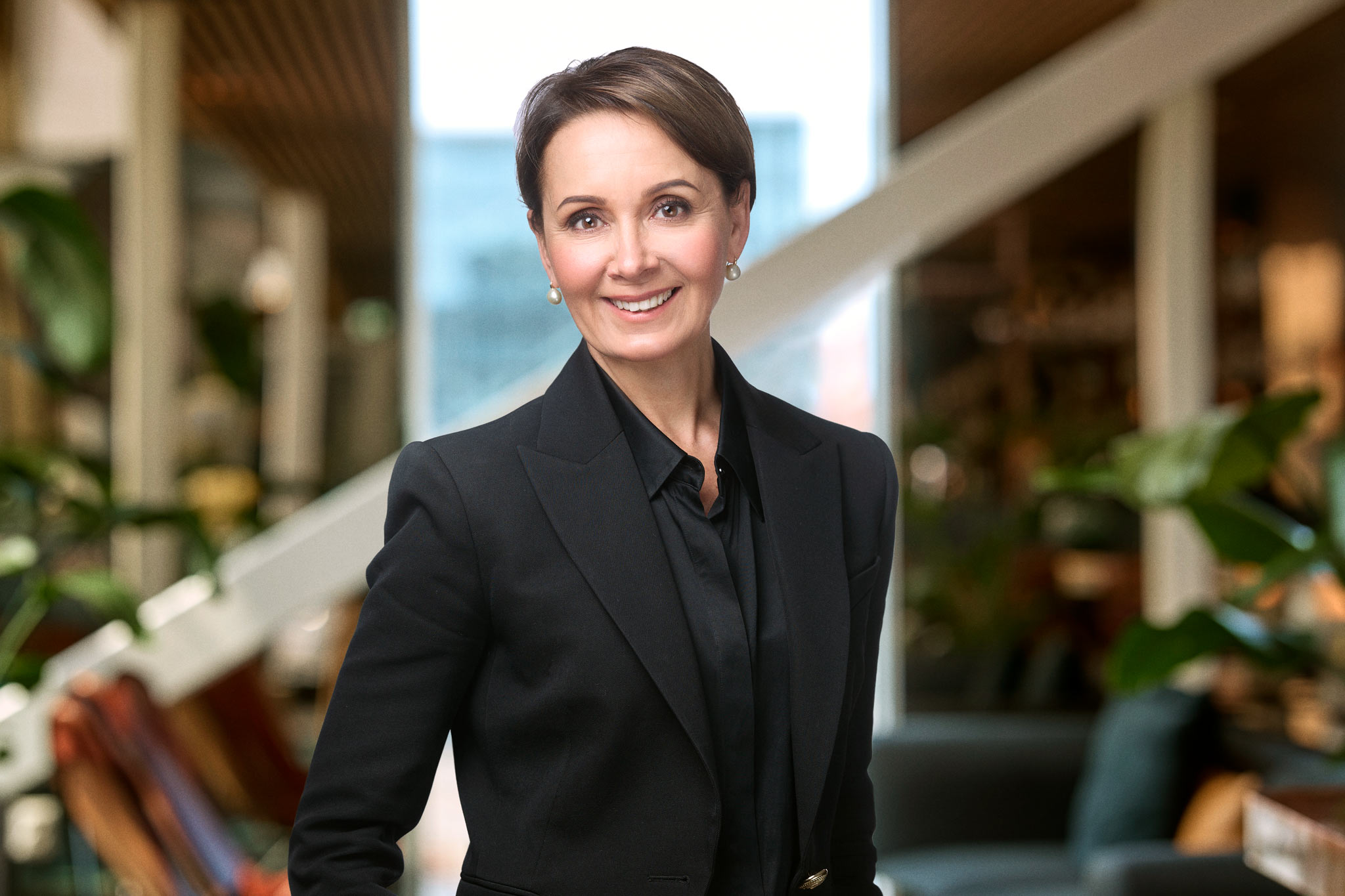Bratislava is the political, cultural, and economic centre of Slovakia. People of many nations and religions, including Austrians, Bulgarians, Croats, Czechs, Germans, Hungarians, Jews, and Slovaks, have influenced the city’s history. Today, the country has a population of 5.4 million.
Bratislava’s service sector, a powerhouse of the city’s economy, employs over 75 per cent of its population. These industries form the backbone of the city’s economic landscape, including trade, banking, IT, telecommunication, and tourism. Major factories in Bratislava, such as the Slovnaft oil refinery and the Volkswagen Bratislava plant, further contribute to Slovakia’s top industries, which include: metal and metal products, food and beverages, electricity, and gas.
Services are the largest sector of the economy, but agriculture, mining, and industry remain essential employers. Slovakia produces more cars per capita than any other country, and the automobile industry accounts for many of the country’s exports. Furthermore, there are eleven universities in Bratislava.
The most important issue in Bratislava’s meetings and events industry is improving the city’s position on the European map. Tourism still needs to be fully developed, but even now, it is a significant factor, in spite of being located in a relatively unknown part of the world for most of the world’s population. There is also a desire for more congresses, events, and incentive travel. In addition, the city lacks a major convention centre, which has been on the development map for quite a while, but has yet to materialise. Peter Petrovic, who has extensive experience as a professional congress organiser (PCO) in Bratislava, agrees:
“Yes, it’s true. But despite the lack of a large congress centre, quite a few congresses in the city have flown under the radar for the general public. We also know that about 80 per cent of all congresses have fewer than 500 participants, and that is a size that is appropriate for Bratislava.”
The geographical location of Bratislava is special because there is no other capital city in Europe that is on the border of three countries or so close to another capital city, which is Vienna in Eastern Austria.
“I cannot imagine another European capital where you can do an incentive trip in three days in three countries, even in four, because the Czech Republic is only 40 kilometres away. It is Bratislava’s unique selling point. It’s a bit negative for the state itself to have a capital on the border and not in the centre, but from the point of view of international tourism and business events, it’s an ideal location.”
“Within ten years, we must create an international congress centre to develop Bratislava”
Peter Petrovic is a partner in Guarant International, which has three partners. Two of them work from Prague, and Peter Petrovic works in Bratislava. He has worked as a PCO for 35 years.
“We were four or five people at the beginning, and today we have 50 employees. That’s quite big, even in Europe. Fifty employees and about 70 additional people work with us even if it’s not regularly.”
When we talk about the future and the development of the market in the Bratislava business events industry, Peter Petrovic sees how the market is changing.
“The generation of people that are around 30–35 years old, brings some changes to the congresses and conferences they sign up for. They don’t need to stay in the best hotels, they don’t insist on prestige, it’s not important to them.
“They like to combine entertainment and fun with science and grow up with the idea that everything should be green and sustainable, and they ask for such services. This generation prefers to attend more events during the year. They see mobility as a value and flexibility as part of the job. In the past, the congress was the only place to exchange the latest scientific knowledge for the participants.”
But while congresses used to be primary knowledge hubs, things have started to change with regards to various discussion forums and how to develop science. The new generation has a high personal understanding of the topics at hand and can exchange ideas and thoughts via webinars and social media. They know that the networks they build at congresses are a gateway to new knowledge and creating even better networks for the future. It’s increasingly about who you want to meet at the congress or conference, and networking is sometimes more important than attending lectures.
“For example, young researchers may not be able to go to Kuala Lumpur in Malaysia for an important international congress, but both important researchers and the latest knowledge also come to Bratislava because it is closer, and costs are still important for young researchers. These young researchers from Slovakia, or even Bratislava in particular, can also get the latest information and knowledge at the price of a tram ticket. This way they don’t have to pay for airfare, or even hotel accommodation, in the case of locals. The third aspect is that a congress held in Bratislava also has an important impact on local science.”
“My vision is that the stakeholders and the politicians drive this industry forward”
Peter Petrovic also points out the importance of having a professional PCO in the city, who understands the language and the meaning of the services needed to create a good congress, perhaps with elements of inventive experiences. The PCO needs an international network and knowledge of how the market works.
“Within ten years, we must create an international congress centre, to develop Bratislava. It would take us, metaphorically, from the local league to the Premier League. It would be a true game changer. If we had the space, the congresses would take place here without any activity against the will of the politicians. And that would be when the politicians exclaim, ‘Aha, Bratislava has a potential.’ But so far, this potential is untapped.
“My vision is that Bratislava, with a congress centre, can become one of Europe’s 20 most important business event cities because the city is very accessible. We have an international airport. It’s not as big a city as London or Paris, but it has the charm of a smaller city, and there are no long transports here.”
According to Peter Petrovic, Bratislava is also more affordable as prices increase throughout Europe. If you compare it with Amsterdam, London, Paris, or similar cities, the train connections to the town are good in terms of sustainability. There are direct trains from Budapest to Hamburg every day, or why not take a bus here to save money?
“That could be good for future meetings in our city. We already have enough infrastructure, but we could do a better job of promoting the destination of Bratislava. I hope our city will succeed in that regard, because I can share another experience. We are preparing a conference here for 2028. And this year, two weeks ago, the current edition of that conference was in Shanghai. And when the Slovak scientists returned from China they said: ‘We were in Shanghai, but saw nothing of the city.’
“My vision is that the stakeholders and the politicians drive this industry forward. The stakeholders are already willing, and the politicians should be able to see that this industry has a far-reaching economic impact on the city and its brand, and that a wide range of stakeholders are already aware of this fact.”



